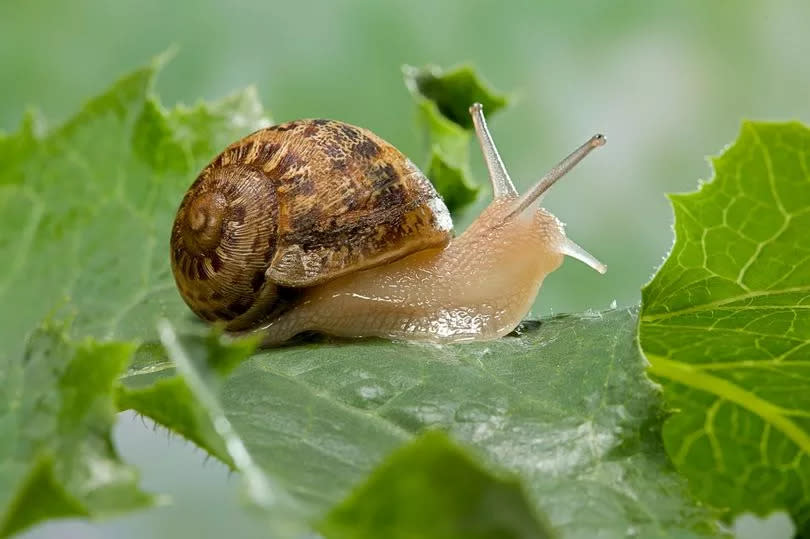Gardeners share natural way to lure slugs and snails away from plants without killing them

Looking for all-natural ways to keep slugs and snails away from your precious plants? Gardening experts have some clever tips for deterring these slimy pests without resorting to harmful methods.
On a Facebook group, user Lucia Potter sought advice on how to deter snails from munching on her plants without resorting to lethal measures. "I can't bear to kill them but I don't want them eating my plants. My hubby says to put them in my green bin. Poisons and slug pellets etc aren't an option as I said I really don't want to kill them," reports the Express.
The top suggestion for natural slug and snail control was to strategically plant species that they find unappealing. Several users recommended creating a green haven with plants that these pests tend to avoid.
Read more: Simple solution to deter wasps from your home without using harmful chemicals
Read more: Gardening expert shares 'free' way to banish slugs and snails from your plants
Angela Johnson shared, "I just grow plants that slugs and snails don't eat and leave them to the wildlife." Jo Ralston echoed this sentiment, stating, "I grow plants that they don't like."
Chris Read suggested: "Try and live with them. There are plants that they leave alone so create your garden scheme using them. That way you don't get bothered by them and they get to live their lives."
Vicky Bull proposed, "You need to put down sacrificial plants. Everything has a place in the garden."
Catrin Smart shared a similar approach, posting, "I leave them where they are, do everything I can to encourage birds into the garden so they will eat them."
With these natural solutions, you can effectively deter slugs and snails from invading your garden while keeping your conscience clear. So, start planting those strategically chosen or unappealing species and let nature take its course!
Craig Morley, a horticultural specialist at Budget Seeds, recommends: "Planting sacrificial or trap plants will lure pests like snails elsewhere in your garden so that they will eat these instead of your other plants."
He further suggests: "For example, planting lettuce in a hidden spot can help to protect ornamental bedding plants, as the snails are more likely to eat the lettuce."
Experts at GardenBuildingsDirect.co.uk also endorse cultivating plants that entice harmful pests away from the plants, crops, and flowers you wish to keep unharmed. Among the recommended varieties are chervil, sunflowers, nasturtiums, lavender, rosemary, marigolds, fennel, and geraniums.
A spokesperson for GardenBuildingsDirect.co.uk explained: "The traditional method for getting rid of destructive bugs would be to use pesticides which could potentially bring toxins into your garden."
They advocate for an alternative approach: "We prefer to use deterrent plants instead, adding a source of food for the insects whilst keeping them away from your most beloved flowers."
They also advise on strategic planting: "The plants you hope to protect will determine how far away you need to plant the decoy sacrificial plants. For some insects, it is best to plant the decoys around the border of the flowers or crops. For others, the sacrificial plants can be placed further away."

 Yahoo News
Yahoo News 
